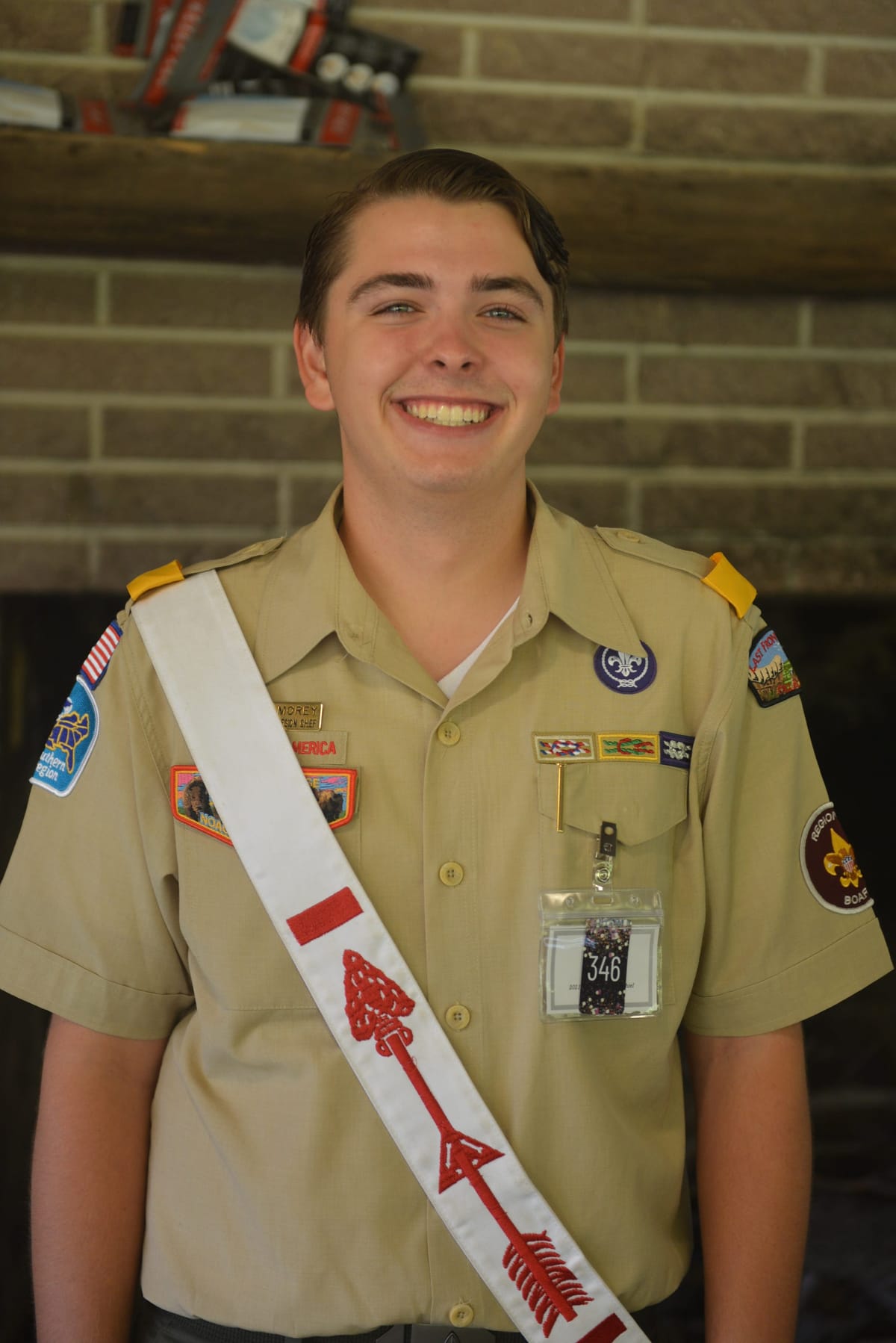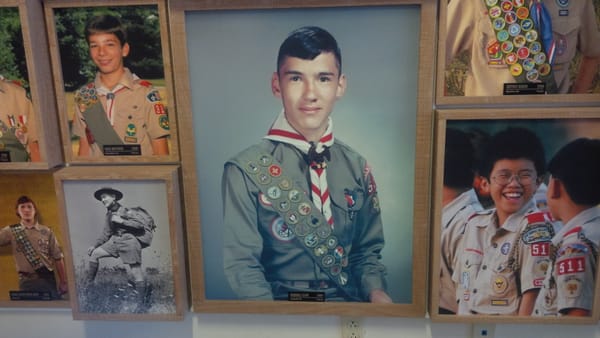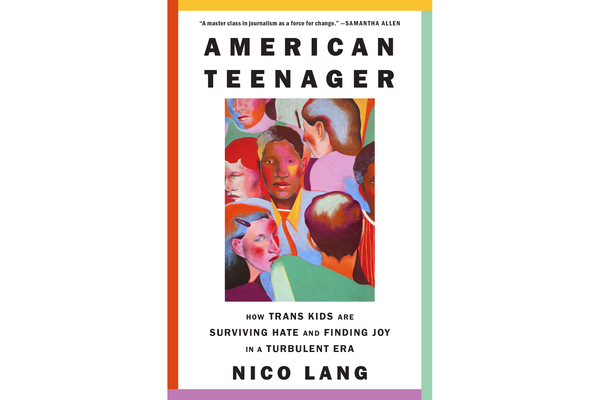Four firsts: The affinity spaces taking shape at this summer's National OA Conference
Nick Morey is helping coordinate spaces at NOAC for the LGBTQ+ community, scouts of color, scouts with disabilities, and women in Scouting.

This year’s National Order of the Arrow Conference, scheduled to take place at the end of July, has been a long time coming.
And not just because the pandemic led to 2020’s conference being cancelled. This year’s conference will also mark a number of “firsts” for the organization — four to be exact — in the form of affinity spaces for some of Scouting’s most marginalized members.
Attendees at this summer’s week-long event will find fully-sanctioned spaces dedicated to the LGBTQ+ community, scouts of color, scouts with disabilities, and women in Scouting.
“It’s really exciting this year to have all four spaces fully backed by the OA and fully supported by the OA,” said Nick Morey, who’s leading the Admonition Team’s efforts at the conference. (The Admonition Team, you’ll remember, is a new group dedicated to diversity, equity, inclusion, anti-racism and mental health in the OA).
Spaces for the LGBTQ+ community have popped up at conferences past, but they’ve never been approved or embraced by Scouting leadership. At the last OA conference in 2018, Scouts for Equality set up shop at the campus LGBTQ+ center, which was technically not part of NOAC, but was in walking distance from the official activities.
This year, a group dubbed ArrowPride will run the first-ever official LGBTQ+ affinity space at a national BSA event. (I’m volunteering with the ArrowPride team this summer in a communications role). Morey is working with ArrowPride, as well as the three other spaces, to make sure each one is fully staffed and programmed for the week of the conference. He says current plans call for the spaces to be located directly across from the trading post, which would guarantee lots of foot traffic.
So far, the biggest challenge in planning these spaces has been finding staff that fall into each representative identity group, according to Morey. “A lot of people have been turned away in the past and aren’t super excited about rejoining,” he said.
In other words, some scouts from historically excluded communities have been burned by the organization and have no interest in participating. But for others, Morey said, the opportunity to make amends is motivation to get back involved.
Each space will have slightly different programming, but Morey said some of the common themes are movie nights and discussion groups. The space for scouts with disabilities will also have sensory rooms, and a model campsite to demonstrate accessible camping practices.
“Really I'm just hoping that it gets more people involved in making sure that people are not only included, but have equity and full inclusion in the programs,” Morey said.
Morey’s involvement in this work is somewhat of a new chapter in his Scouting career. As a “white guy in Scouting,” Morey said he’s never had to give much thought to issues of diversity and inclusion. He always had a seat at the table, and he held one leadership position after another, eventually ascending to the role of Southern Region chief for the Order of the Arrow in 2021.
But he was eventually inspired to join the Admonition Team, which grew out of mental health conversations after the death of Tyler Wright, an arrowman, section chief and eagle scout from Alabama.
Morey had met Wright a handful of times, and grew closer to him through a Zoom hangout group in the early days of the pandemic. After Wright’s death, the Admonition Team formed out of a desire to support mental health in the organization.
“The OA has a lot of great opportunities for youth, but [it’s] also kind of a high stress time in a lot of people’s lives,” Morey said. “It was really meaningful that they reached out immediately after Tyler passed away.”
Morey, who has struggled with anxiety and depression himself, took that as his cue to get involved.
“It was really nice to have that support system through Scouting,” he said.




